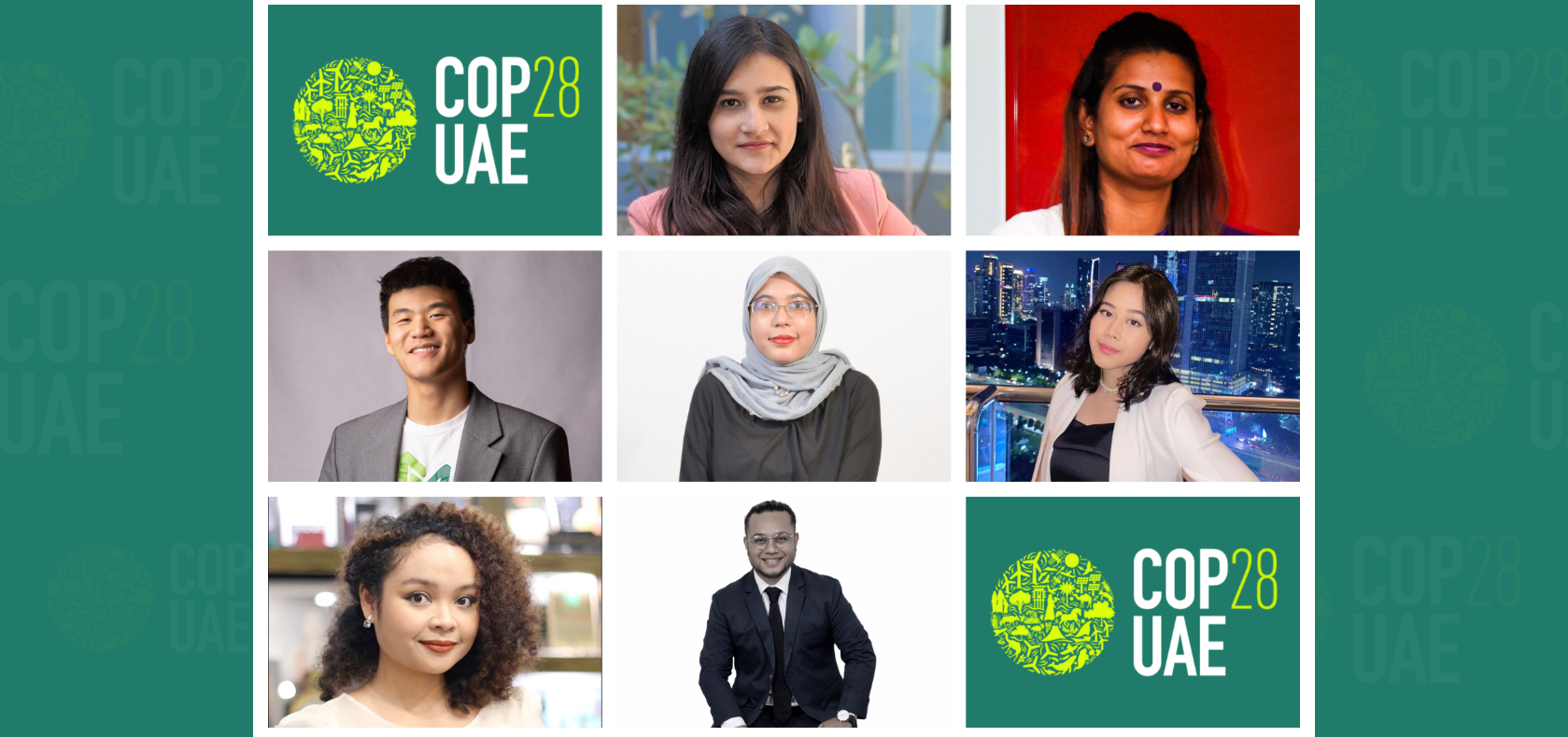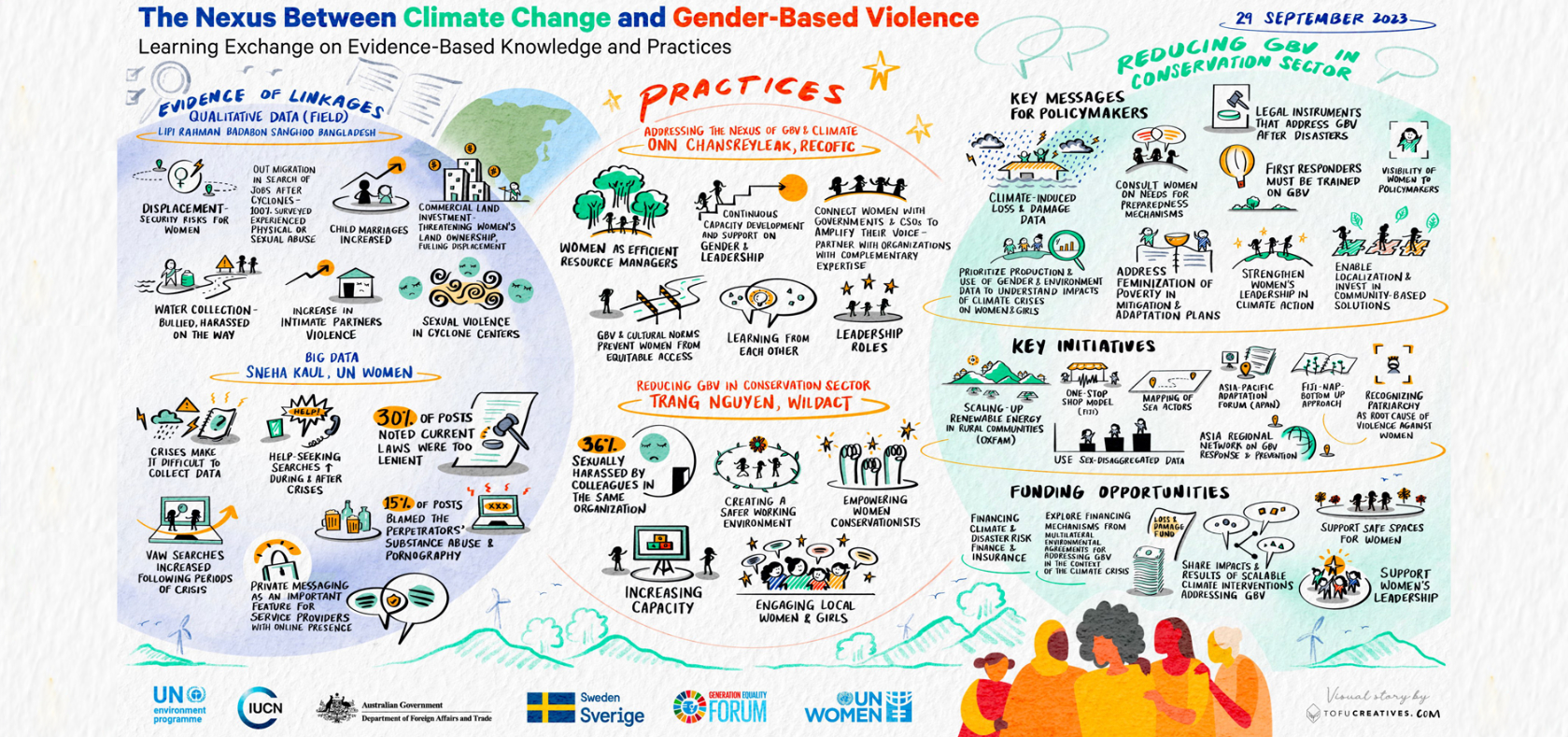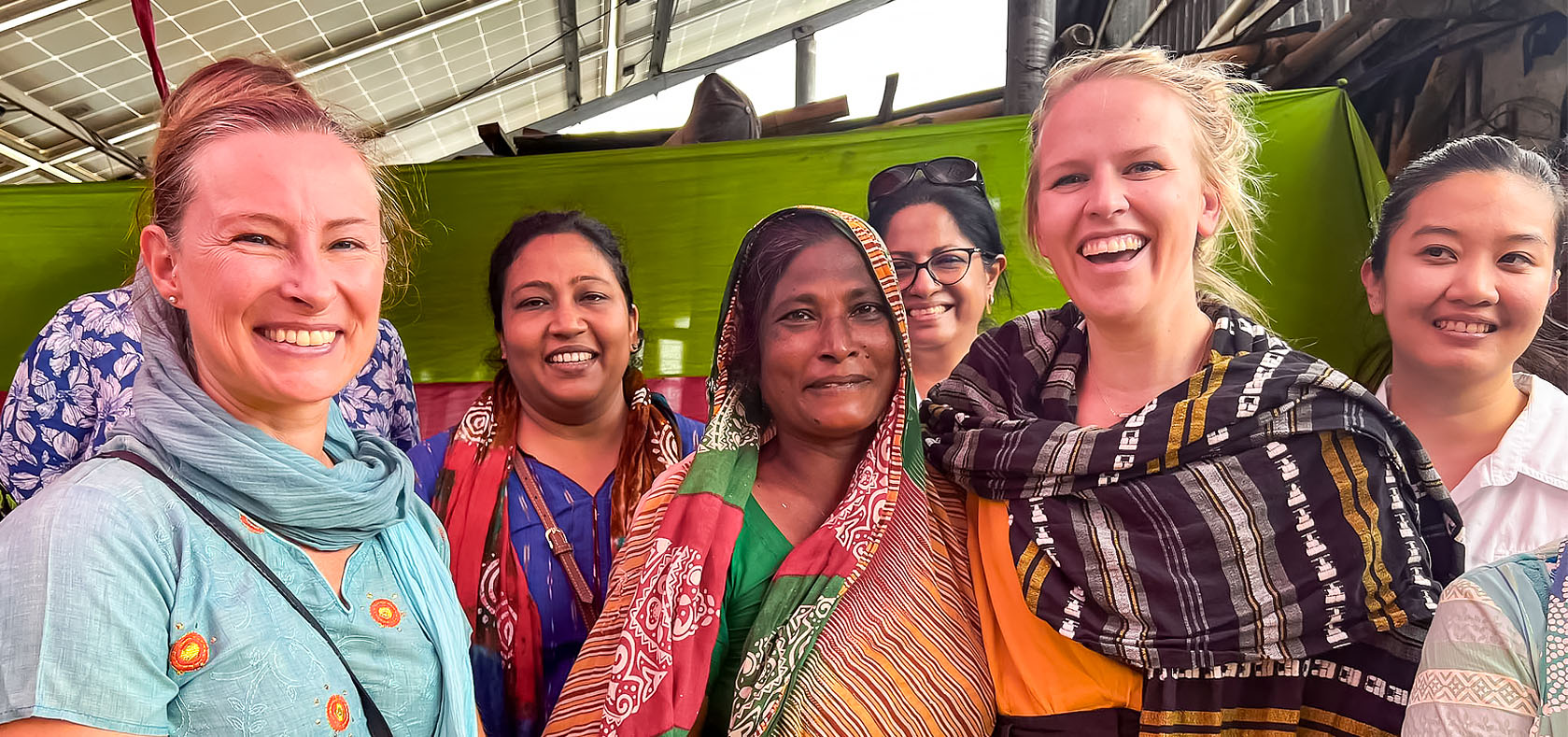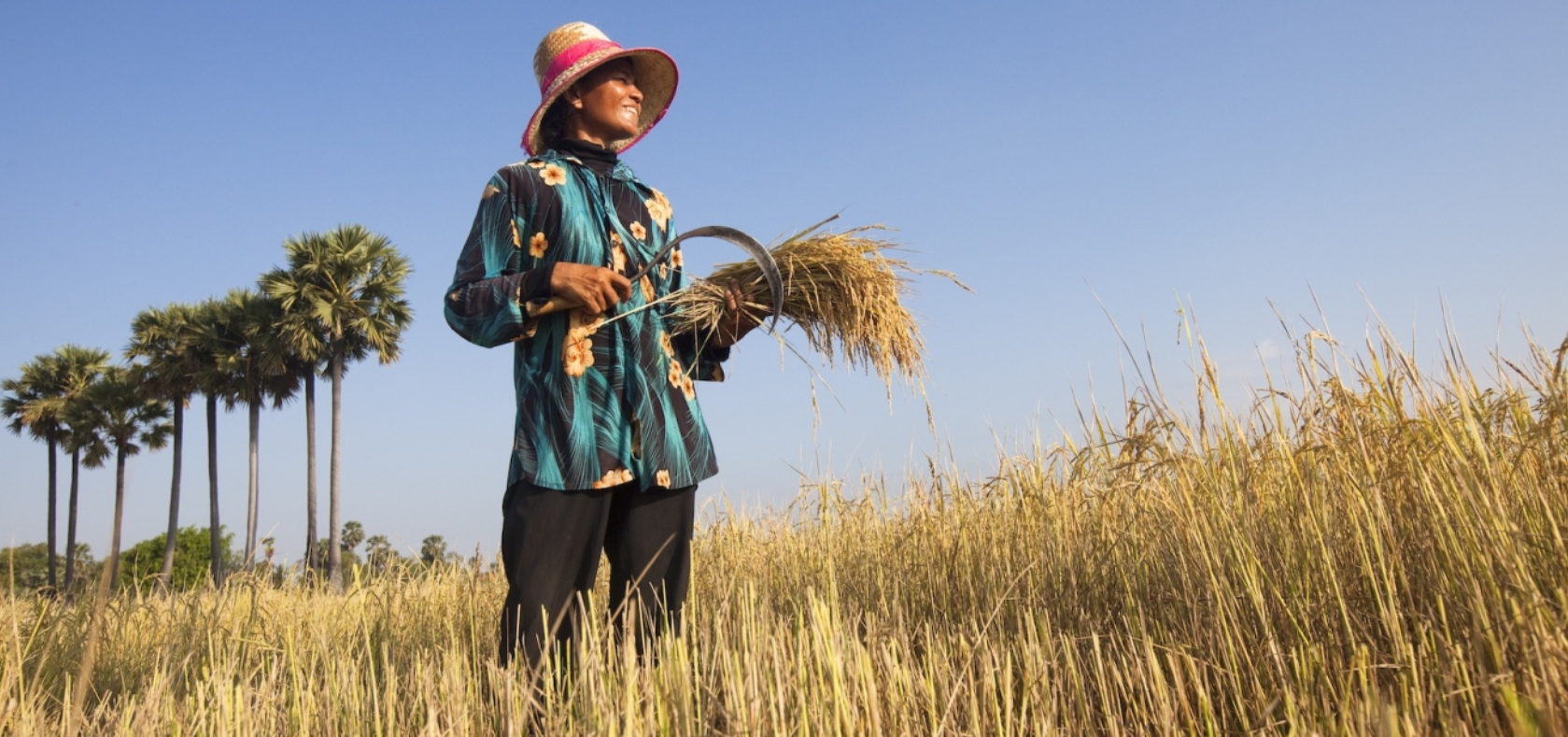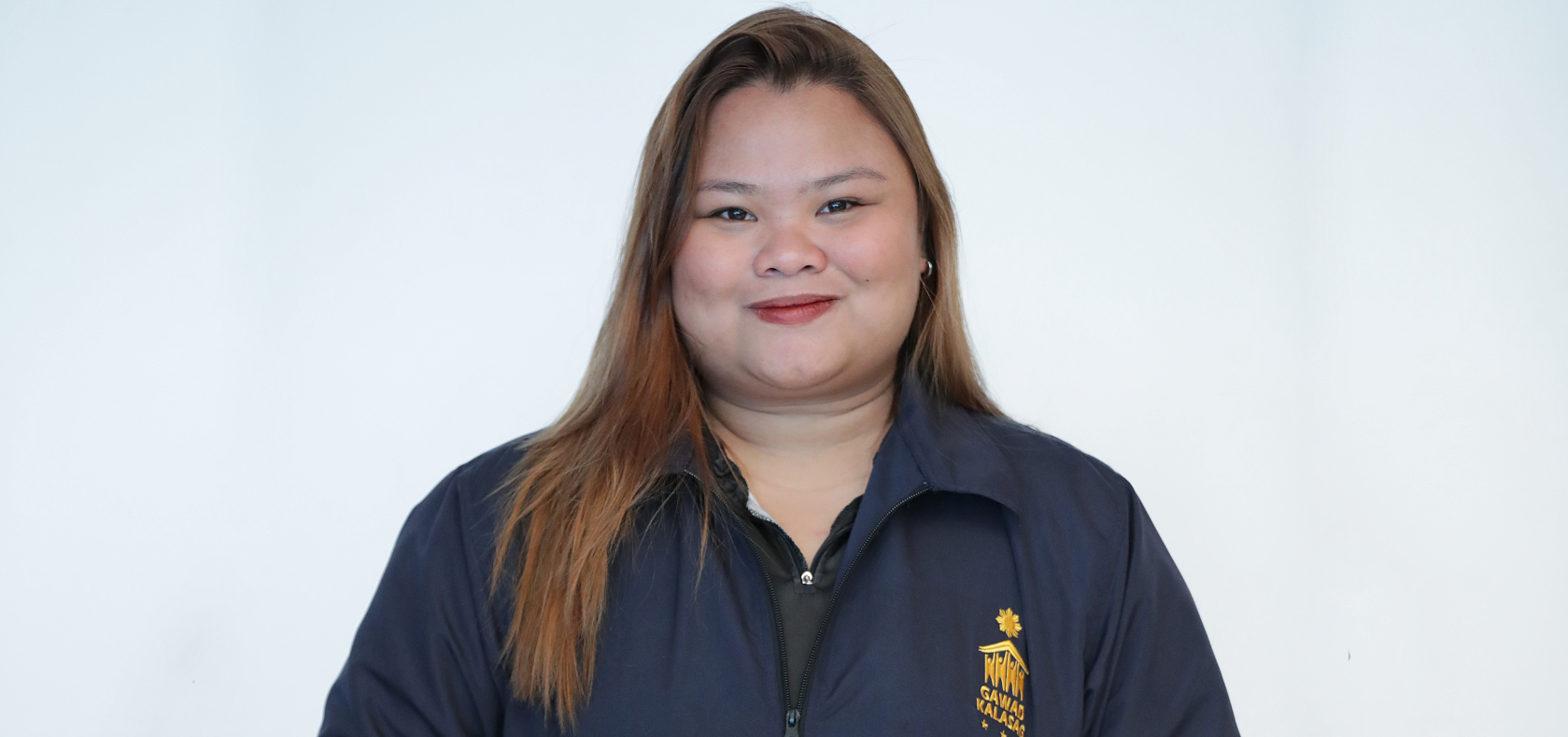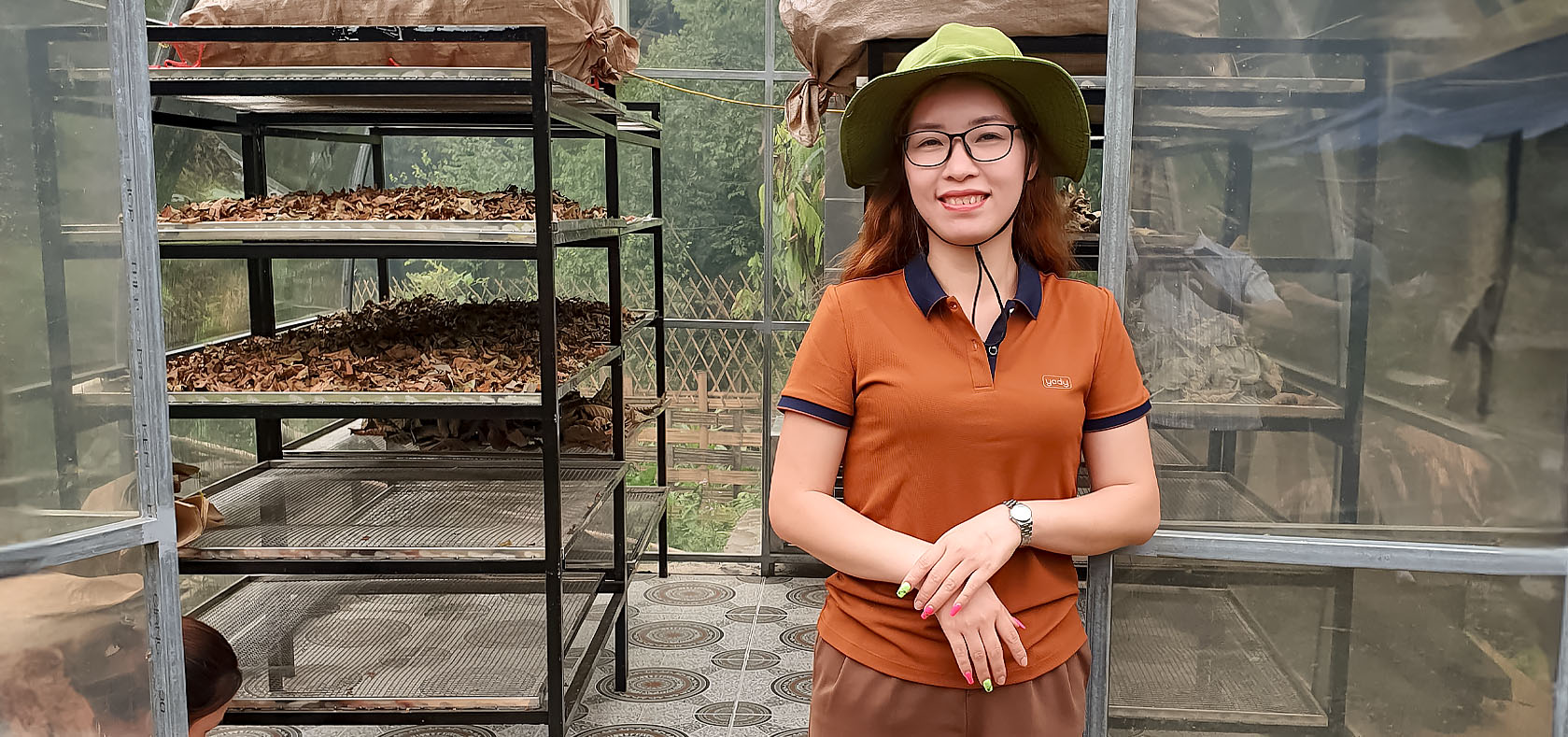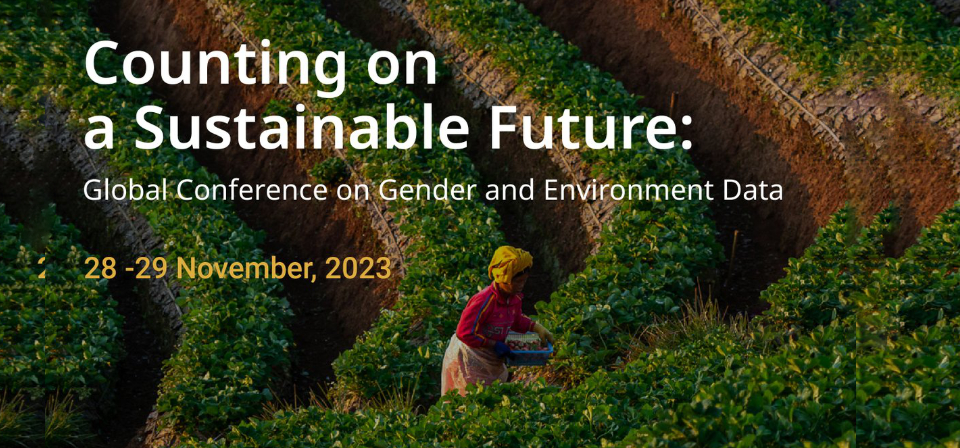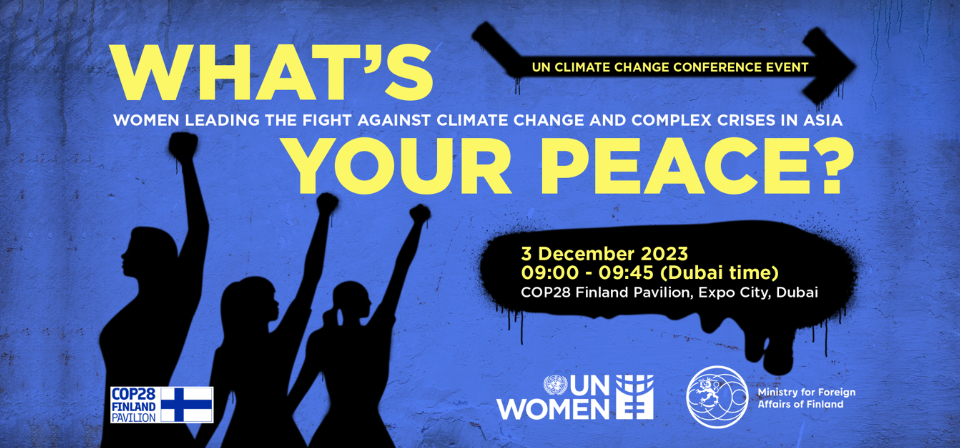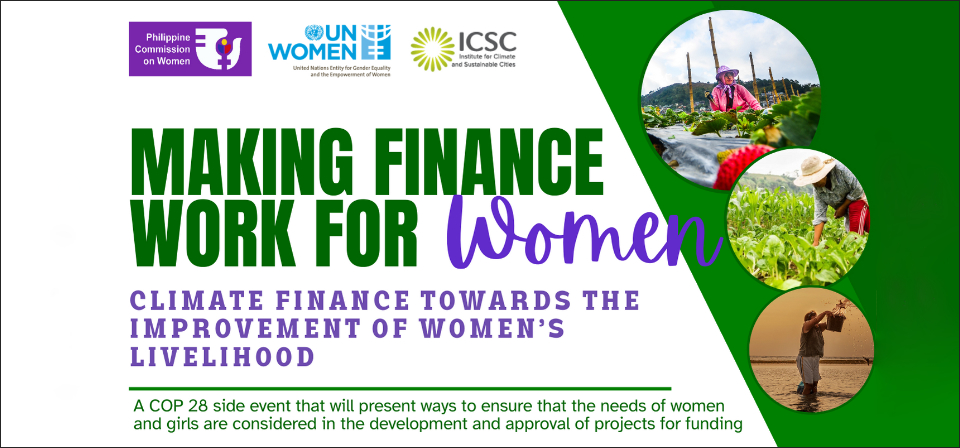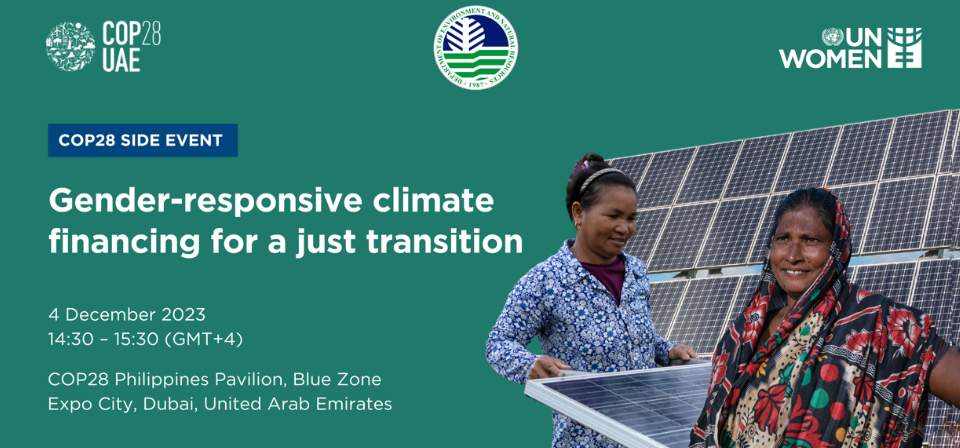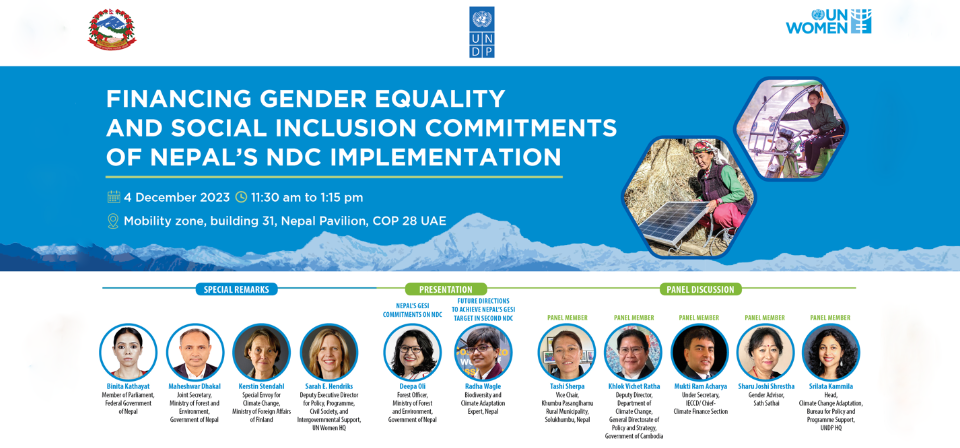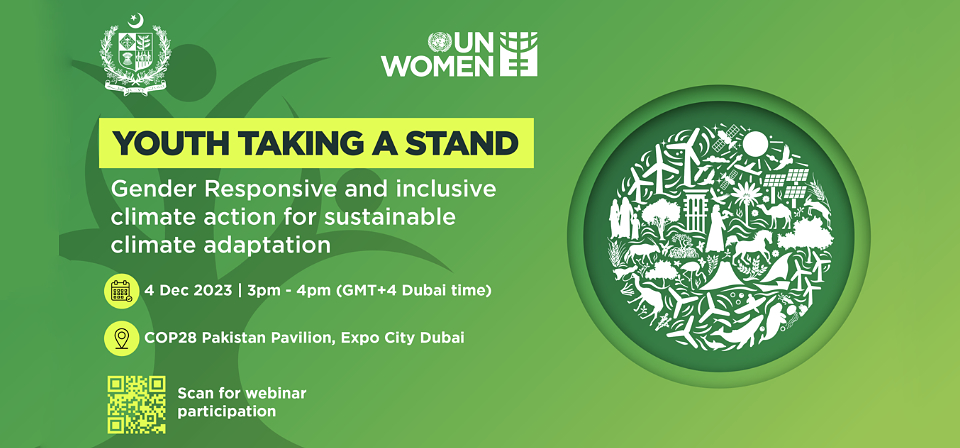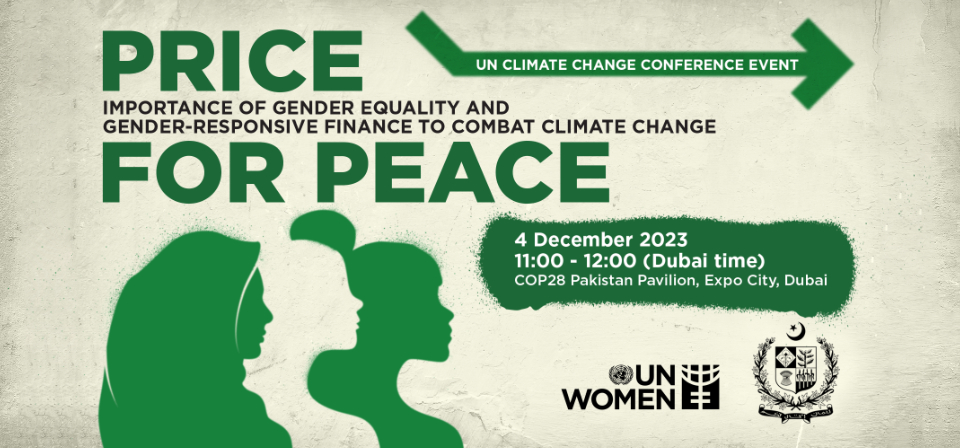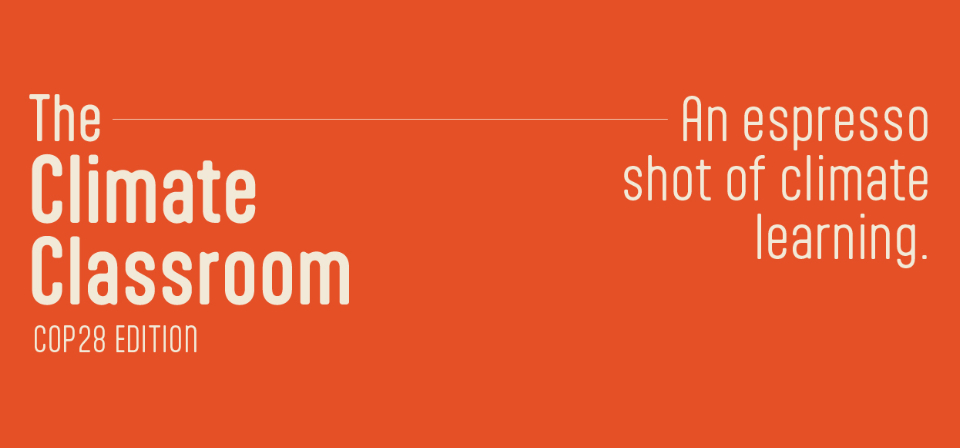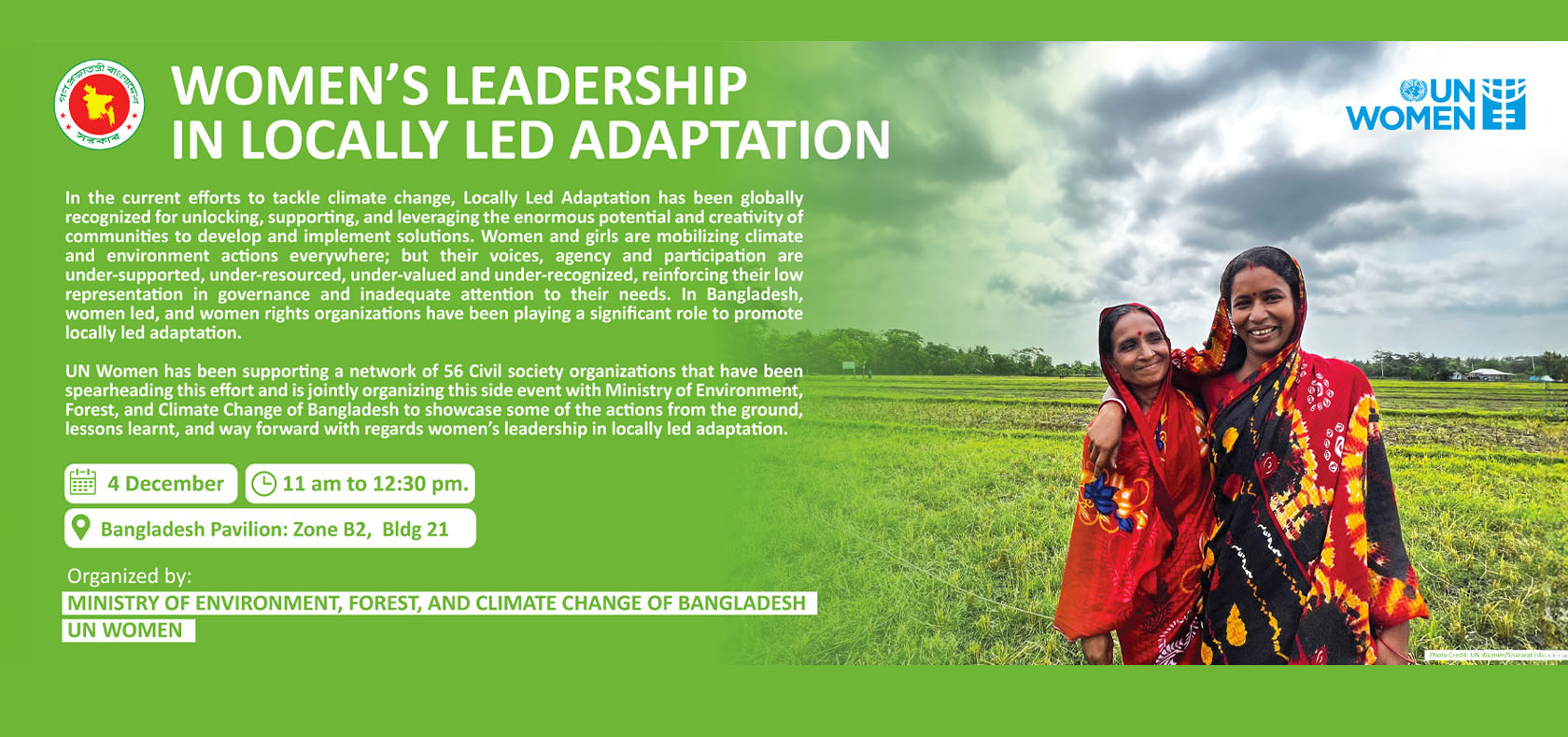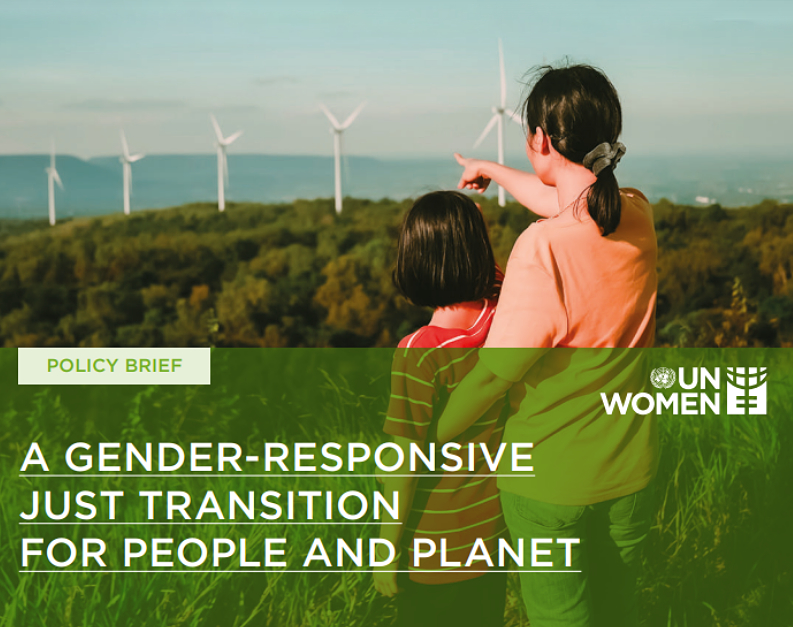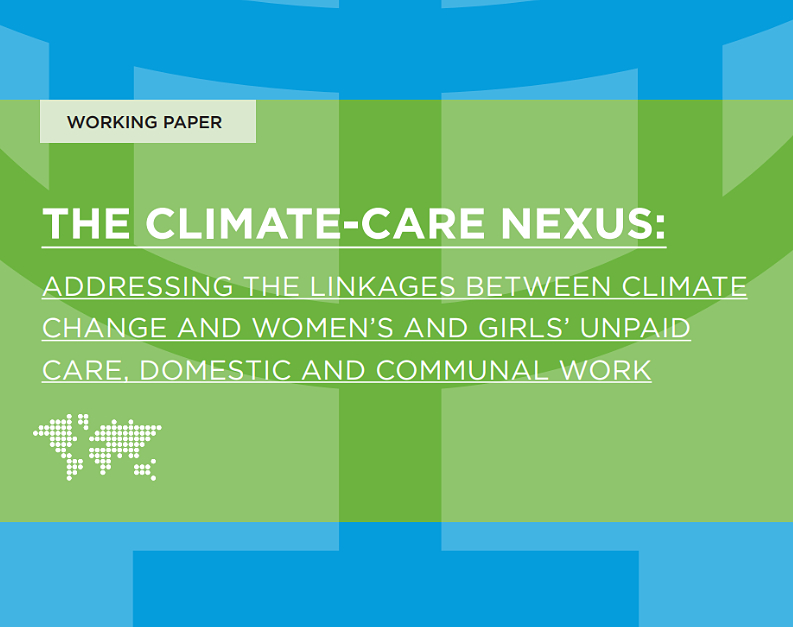In Focus: UN Women Asia-Pacific at COP 28
Date:
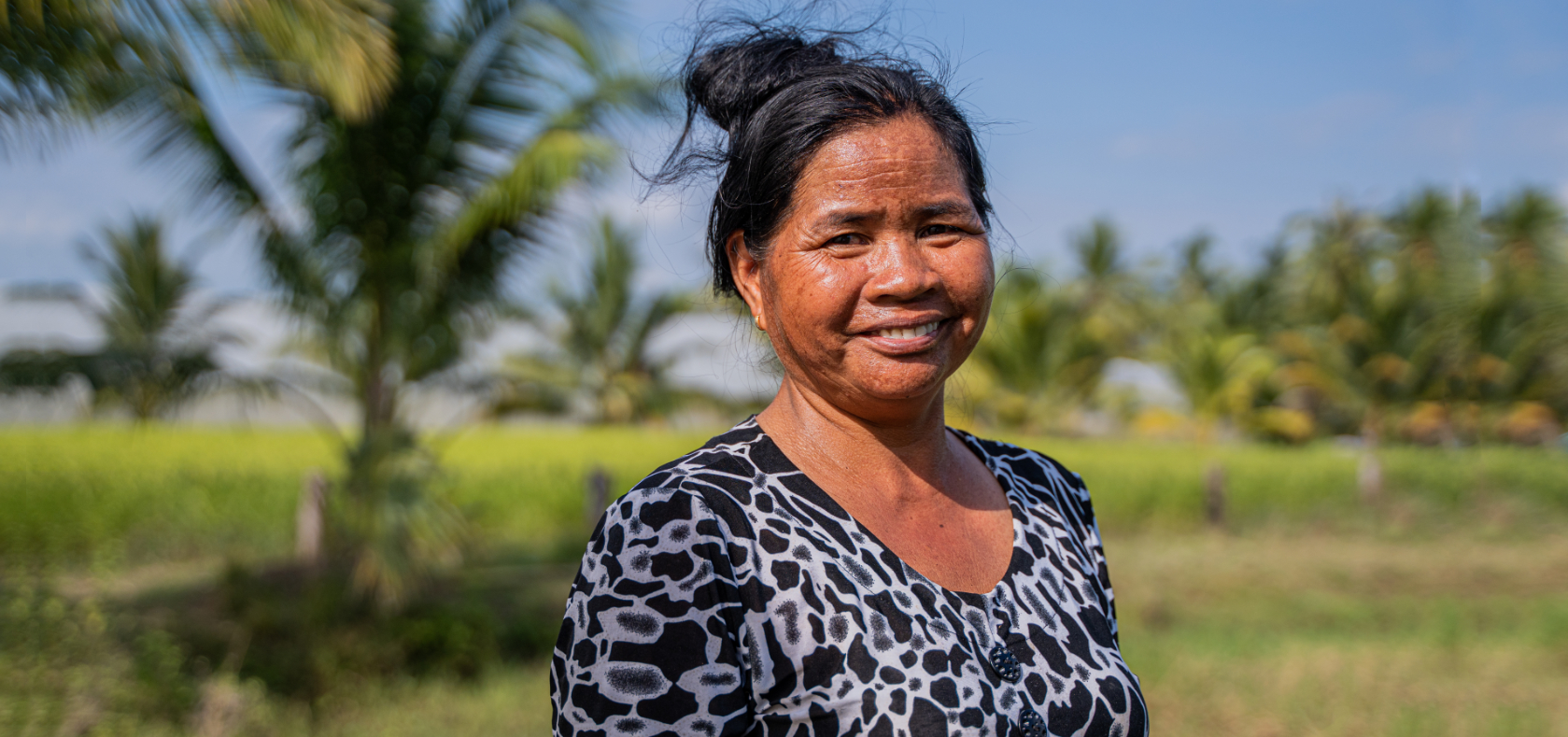
Stories | Events | Videos | Resources
At this year’s UN Climate Change Conference, COP 28, UN Women will ensure that women and girls’ rights, abilities, and priorities are taken into account in climate debates and influence government policies in order to raise climate ambition.
Women and girls have been at the forefront of climate activism and can offer unique knowledge and expertise—including among Indigenous, rural, and young populations—that can support more ambitious and effective climate action.
As extreme weather events increase in intensity and frequency, and slow onset climate changes bring about new ecosystem challenges, women and girls across Asia and the Pacific are exposed to disproportionate challenges, including increasing food insecurity, depleting natural resources, and increased exposure to gender-based violence.
As countries in the region look to transition their economies away from fossil fuel extraction and other harmful environmental practices, it will be essential to ensure that the benefits of these changes are fairly distributed, ensuring gender-responsive transitions that prioritize the rights of women and contribute to gender equality in the region.
At COP 28 and throughout its programming, UN Women Regional Office for Asia and the Pacific works to integrate gender equality and a Leave No One Behind approach into the design, funding, implementation, monitoring, and evaluation of policies and programmes on climate change mitigation and adaptation.
Read more about gender & women at COP 28 on the UNFCCC website.
Stories
Asia Pacific: Youth champions from Asia-Pacific make waves at COP28
Asia Pacific: Civil society organizations from Asia-Pacific explore ways to address gender-based violence fueled by climate change
Bangladesh: Women show how they are building climate-resilient agricultural communities in Bangladesh
Events
Counting on a Sustainable Future
28-29 November 2023
Government officials, advocates and experts from Cambodia, Fiji, India, the Philippines and Tonga will join the Global Conference on Gender and Environment Data to collectively raise the profile of gender-environment data to inform the COP28. Read more and register
UN Climate Change Conference (COP 28) side event: What’s your peace?
3 December 2023
You are invited to join us in exploring tangible synergies between the WPS agenda with a focus on best practices for WPS National Action Plans. Read more
Making Finance Work for Women: Climate Finance Towards the Improvement of Women’s Livelihood
4 December 2023
This side event will highlight the impact of climate finance on the livelihood of women. Read more
4 December 2023
To Highlight innovative approaches that integrate gender-responsive climate financing for a just transition... Read more
4 December 2023
This event will focus on stocktaking, how to strengthen financing for GESI and climate action... Read more
UN Climate Change Conference (COP 28) side event: Youth taking a stand
4 December 2023
You are invited to hear from the speakers how the human security perspective and gender approach offer entry points for sustainable climate finance. Read more
UN Climate Change Conference (COP 28) side event: Price for Peace?
4 December 2023
You are invited to hear from the speakers how the human security perspective and gender approach offer entry points for sustainable climate finance. Read more
The Climate Classroom: Gender Equality, Climate Justice and Youth Power
4 December 2023
Co-hosted by UNITAR and UN Women Asia-Pacific, this session will offer an interactive learning experience introducing key considerations on gender, climate and youth during COP28. Register now
Women’s Leadership in Locally led Adaptation
4 December 2023
The objective of the side event is to showcase some of the actions from the ground, lessons learnt, and way forward with regards women’s leadership in locally led adaptation. more
Videos
Pacific: Women’s resilience to disasters
This video features stories and statements of resilience to disasters from individual women in Fiji, Vanuatu and Kiribati in the Pacific. They have been collected by the Women’s Resilience to Disasters Programme implemented by UN Women and supported by the Government of Australia. Watch the video
Asia-Pacific: Our journey to empower
Asia-Pacific is one of the most vulnerable regions in the world to the impacts of climate change, especially for women and marginalized groups who are disproportionately impacted by its effects. Watch the video
Bangladesh: Rohingya Women and the environment
Morium Khatun and Taslima Khatun spoke about how women and children were affected due to unsafe roads in their refugee camp in Cox’s Bazar. Watch the video
